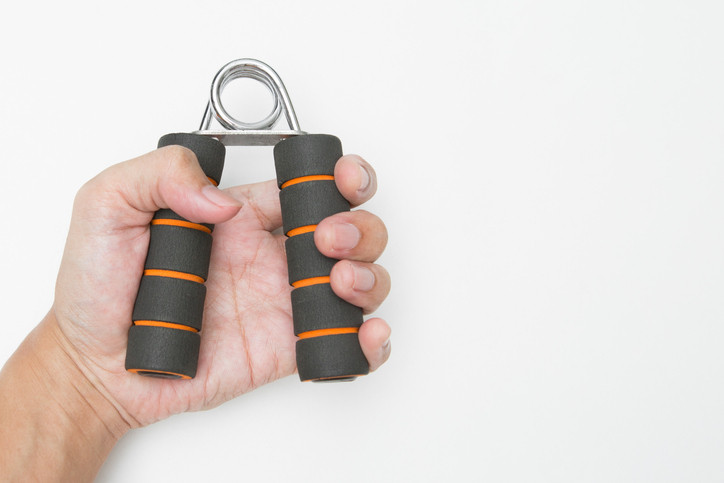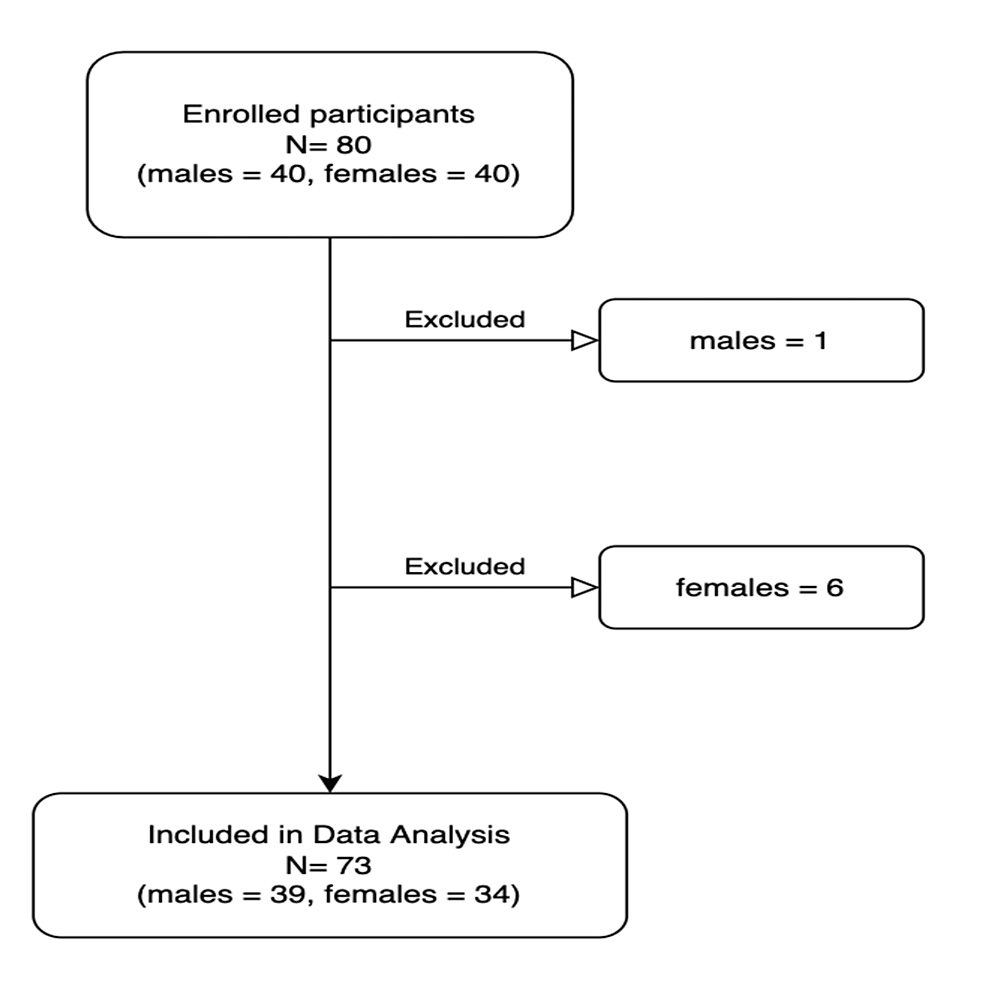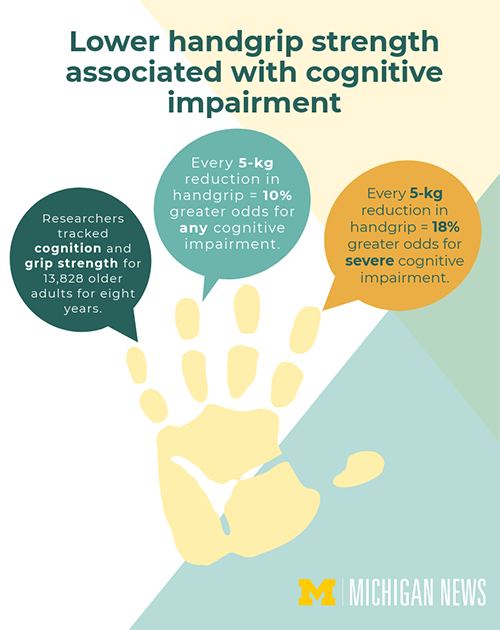
A large study published online June 23, 2022, by JAMA Network Open found that poor handgrip strength in midlife was associated with cognitive decline a decade later.

Longitudinal development of manual motor ability in autism spectrum disorder from childhood to mid‐adulthood relates to adaptive daily living skills - Travers - 2017 - Developmental Science - Wiley Online Library

PDF) Handgrip Strength and Cause‐Specific and Total Mortality in Older Disabled Women: Exploring the Mechanism

Using grip strength to compute physical health-adjusted old age dependency ratios - ScienceDirect

Identifying characteristics and clinical conditions associated with hand grip strength in adults: the Baseline Health Study

Identifying characteristics and clinical conditions associated with hand grip strength in adults: the Baseline Health Study

Exploring grip strength as a predictor of depression in middle-aged and older adults

Cureus, The Utility of Grip Strength as a Simplified Measure of Frailty in the Older Adult in the Preoperative Clinic

Low Grip Strength Linked to Impaired Cognition, Memory Loss in Older Americans

Does socio-economic status predict grip strength in older Europeans? Results from the SHARE study in non-institutionalised men and women aged 50+